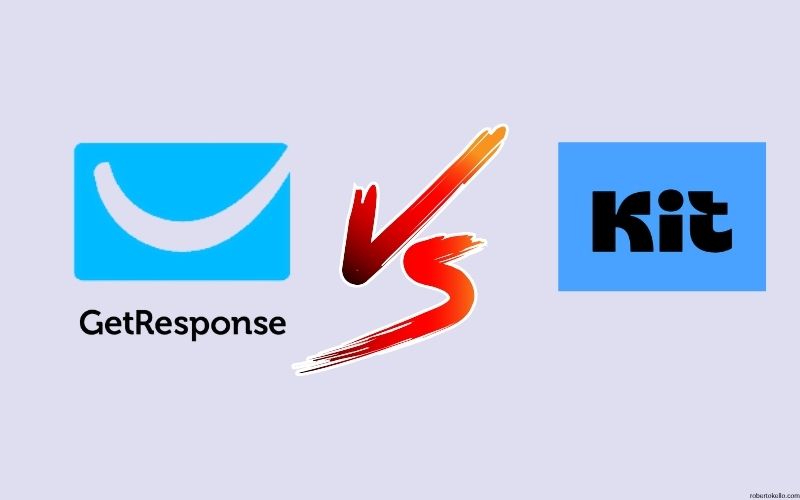In today’s digital age, understanding how to effectively monetize content is crucial for businesses and individuals alike. Digital marketing plays a pivotal role in achieving this goal, offering a diverse range of strategies and techniques. Let’s delve into the world of digital marketing and explore strategies for successfully monetizing content.
Table of Contents
ToggleUnderstanding Digital Marketing Strategies
Digital marketing encompasses various strategies, each serving a unique purpose in the online landscape. Content marketing, social media marketing, and email marketing stand out as pillars in this realm.
Content Marketing involves creating and distributing valuable, relevant content to attract a target audience. It serves as the foundation for successful monetization.
Social Media Marketing focuses on leveraging social platforms to build a brand’s presence, engage with audiences, and drive traffic. This strategy provides an excellent avenue for content promotion.
Email Marketing remains a powerful tool for connecting with an audience directly. Crafting compelling email campaigns can significantly contribute to content monetization.
Monetization Techniques
Once content is created, the next step is to monetize it effectively. Advertising revenue, affiliate marketing, and sponsored content are popular techniques.
Advertising Revenue involves earning money through displaying ads on websites or platforms. Strategic ad placement can maximize revenue potential.
Affiliate Marketing allows content creators to earn a commission by promoting other people’s products. It’s a symbiotic relationship between creators and businesses. Read more on Affiliate Marketing Tips and Tricks for Success.
Sponsored Content involves collaborating with brands to create content that aligns with their products or services. This provides a direct revenue stream.
SEO Best Practices
Implementing SEO best practices is essential for content discoverability. Keyword research, on-page optimization, and creating high-quality content are fundamental aspects.
Keyword Research helps identify the terms and phrases users are searching for. Incorporating these into content improves search engine rankings.
On-Page Optimization involves optimizing individual pages for search engines. This includes meta tags, headers, and multimedia elements.
Quality Content Creation remains the cornerstone of effective SEO. Engaging, informative content not only attracts visitors but also encourages them to stay and explore.
SEO tools are a great way to improve your SEO performance. They can help you perform tasks such as keyword research, site audit, competitor analysis, on-page SEO and more.
Leveraging Social Media Platforms
Social media platforms are indispensable for content promotion. Engaging content creation, building a follower base, and utilizing paid ads are key strategies.
Engaging Content Creation involves crafting content tailored to each platform, considering audience preferences and trends.
Building a Follower Base requires consistent and meaningful interactions. Quality followers are more likely to engage with monetized content.
Utilizing Paid Ads amplifies reach and visibility. Strategic use of paid advertising can boost content monetization efforts.
Email Marketing Tactics
Building and nurturing a subscriber list is crucial for effective email marketing. Crafting compelling email campaigns and analyzing metrics for improvement further enhance its impact.
Building a Subscribers List involves offering incentives for users to subscribe. This creates a direct line of communication with the audience.
Crafting Compelling Email Campaigns requires a balance of informative content and enticing offers. Personalization and segmentation contribute to campaign effectiveness.
Analyzing Metrics for Improvement is an ongoing process. Understanding open rates, click-through rates, and conversion metrics helps refine future campaigns.
Email marketing tools are a great way to improve your customer reach and engagement. They can help you perform tasks such as create email automation, create landing pages, create newsletters, contact dashboard, and more.
Analyzing Data and Metrics
Analytics provide valuable insights into the performance of digital marketing strategies. Utilizing tools like Google Analytics helps in making informed decisions and adjusting strategies based on data.
Importance of Analytics cannot be overstated. It’s the compass guiding marketers to understand what works and what needs improvement.
Utilizing Google Analytics offers a comprehensive view of website performance, user behavior, and the effectiveness of marketing efforts.
Adjusting Strategies Based on Data is a continuous process. Adapting to changing trends and consumer behavior ensures sustained success.

Staying Updated with Trends
The digital landscape is dynamic, with trends constantly evolving. Staying updated is essential for effective content monetization. Embracing emerging technologies, shifting consumer behavior, and following industry leaders are key practices.
Ever-Changing Digital Landscape demands a proactive approach. Keeping abreast of technological advancements and industry shifts positions content creators for success.
Importance of Adaptability cannot be stressed enough. Being adaptable to change ensures resilience in the face of evolving market dynamics.
Following Industry Leaders provides valuable insights. Learning from those who have succeeded in content monetization can offer practical strategies and inspiration.
Challenges in Monetizing Content
While digital marketing opens avenues for monetization, challenges exist. Ad-blockers, ad fatigue, and the emergence of new platforms and technologies pose hurdles to content creators.
Ad-Blockers and Ad Fatigue require creative solutions. Native advertising, engaging content, and exploring alternative monetization methods help overcome these challenges.
Saturation in Content Marketing demands differentiation. Standing out amidst a sea of content requires unique value propositions and creative approaches.
Emerging Platforms and Technologies present both opportunities and challenges. Being early adopters can provide a competitive edge but requires careful evaluation.
Case Studies of Successful Digital Marketing Strategies
Examining case studies of brands that excelled in monetizing content offers practical insights. Identifying key takeaways and implementing lessons learned can significantly impact one’s own strategy.
Brands That Excelled in Monetizing Content include success stories from various industries. Analyzing their journey provides inspiration and actionable strategies.
Key Takeaways from Success Stories often revolve around understanding the audience, adapting to trends, and delivering consistent, high-quality content.
Implementing Lessons Learned involves tailoring strategies to fit individual goals and target audiences. Successful strategies are adaptable and scalable.
Future Trends in Digital Marketing
Anticipating future trends is crucial for sustained success. Emerging technologies, shifting consumer behavior, and evolving opportunities for content monetization are key considerations.
Emerging Technologies such as augmented reality (AR), virtual reality (VR), and artificial intelligence (AI) present new possibilities. Exploring these can give content creators a competitive advantage.
Shifting Consumer Behavior influences content consumption patterns. Adapting strategies to align with changing preferences ensures relevance.
Opportunities for Content Monetization continue to evolve. Diversifying strategies and exploring new platforms can tap into emerging opportunities.
Importance of Diversification
Relying on a single revenue stream is risky. Spreading across multiple platforms, reducing dependency, and balancing quality and quantity contribute to long-term success.
Spreading Across Multiple Platforms minimizes risk. Being present on various channels increases the chances of reaching diverse audiences.
Reducing Dependency on a Single Revenue Stream involves exploring multiple monetization methods. This mitigates the impact of changes in any one sector.
Balancing Quality and Quantity ensures sustainable growth. Consistently delivering high-quality content while maintaining a steady flow is the key to success.
Tips for Beginners
For those new to content monetization, starting small, continuous learning, and building a personal brand are foundational tips.
Starting Small and Scaling Up allows beginners to learn and adapt without overwhelming themselves. Gradual progression is key to long-term success.
Continuous Learning and Adaptation is a mindset. The digital landscape evolves, and those who stay curious and adaptable thrive in this dynamic environment.
Building a Personal Brand establishes credibility. Consistent messaging and authentic engagement contribute to a strong online presence.
Common Mistakes to Avoid
Even seasoned content creators can fall into common pitfalls. Overlooking analytics, neglecting social media presence, and ignoring the mobile audience are mistakes to avoid.
Overlooking Analytics hinders progress. Regularly analyzing data guides strategic decisions and optimizations.
Neglecting Social Media Presence reduces visibility. Engaging with the audience on social platforms is a vital aspect of content monetization.
Ignoring the Mobile Audience is a missed opportunity. Optimizing content for mobile devices ensures accessibility to a broader audience.
Conclusion
In conclusion, effective digital marketing strategies are instrumental in successfully monetizing content. From understanding the fundamentals to staying updated with trends and learning from case studies, a holistic approach is essential. Content creators must navigate challenges, embrace diversification, and continuously adapt to the ever-changing digital landscape. By incorporating these strategies and avoiding common mistakes, individuals and businesses can thrive in the competitive world of online content monetization.
FAQs
How long does it take to see results from digital marketing strategies? Results vary, but consistent efforts may yield noticeable improvements within a few weeks to months.
Is social media marketing necessary for content monetization? Yes, social media marketing enhances visibility, engagement, and the potential for content monetization.
What role does quality content play in SEO? Quality content is crucial for SEO success as it attracts visitors, encourages engagement, and improves search rankings.
How can beginners avoid common pitfalls in content monetization? Beginners should start small, stay informed, and prioritize building a personal brand to avoid common mistakes.
Are there risks in relying on a single revenue stream for content monetization? Yes, relying on a single revenue stream can be risky; diversification minimizes the impact of unforeseen changes.










